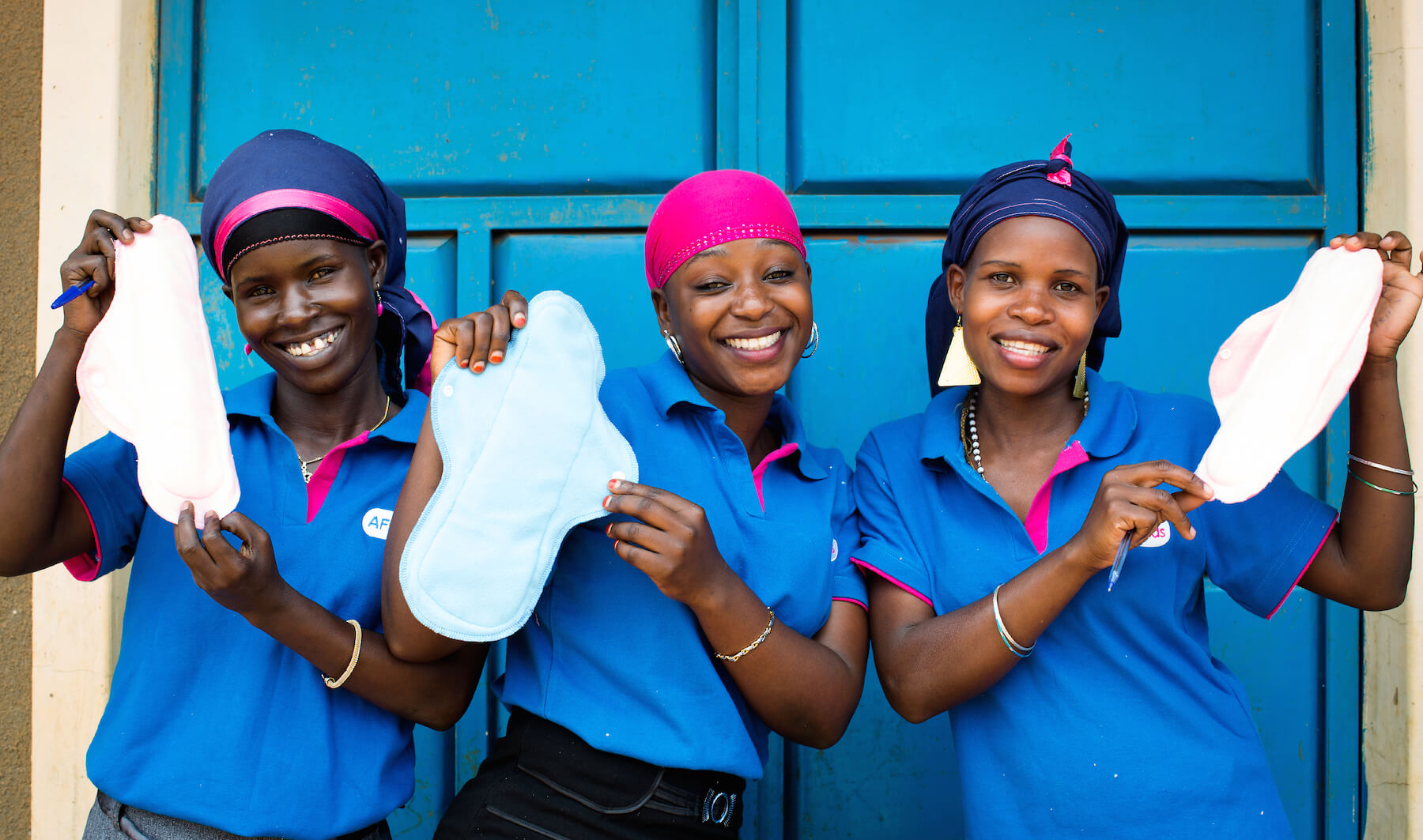
Global Issue
Illiteracy
Series
If You Can Read This
Month after month, millions of women and girls around the world resort to managing their period with pieces of mattress, newspaper, or even tree bark because they lack access to or cannot afford proper sanitation products. For many of these girls, getting their period means putting their life on hold.
According to Unicef, one out of 10 African schoolgirls skips school or drops out entirely due to a lack of adequate menstrual products and proper sanitation. Research indicates that in Uganda this figure is even higher, with 29.7 percent of girls enrolled in primary school skipping school days once they start menstruating.
1 in 10 African schoolgirls skips school or drops out entirely due to a lack of adequate menstrual products.
Paul and Sophia Grinvalds, husband and wife, and co-founders of AFRIpads, experienced this firsthand while living in a remote village in western Uganda. When Sophia needed menstrual products, they discovered that a critical gap existed between makeshift solutions and expensive sanitary pads, which were largely inaccessible. The pair then turned to the community to learn more about the impact this issue has had on local women and girls.
“[The headmistresses and teachers] started telling us that a lot of young girls would just stay home during their period, and blame it on having malaria, or feeling sick because they had no product to use,” Paul recounts.
It is therefore not surprising that girls do not continue on to secondary school at the same rate as boys do. In Uganda, net secondary school attendance of girls hovers as low as 18.7 percent. This is partially explained by the cultural and economic decisions triggered by the onset of menstruation.
“We thought if we could actually create something that could bridge that gap in the market,” says Paul, “then we could get girls to school.”

Photo: Sophia Grinvalds
AFRIpads are washable and reusable sanitary pads made from a high-tech polyester fabric that allows them to be super absorbent and quick to dry. The AFRIpad snaps into a pair of underwear so that it fits comfortably and securely. Each Afripad can be used for six to eight hours and can then be quickly folded up in its packaging. When a girl gets home from school, she can soak it in water for 15 minutes, wash it, and then hang it up to dry and be reused.
The product’s washable fabric enables girls to use each pad for over 12 months. At a price that equals that of a single-use sanitary pad, the AFRIpad costs significantly less, especially when considering that an average woman or girl might use an entire pack of sanitary pads each month.
AFRIpads increases accessibility to sanitary products by selling directly to consumers in supermarkets and through partnerships with NGOs that provide aid to refugees from surrounding conflict zones in Somalia, South Sudan, Democratic Republic of Congo, and Burundi.
When you invest in girls, you invest in education, you invest in healthcare, and you invest in the future.
“It was rare that they were supplying any sort of washable sanitary pads,” Paul says of Unicef, who became AFRIpad’s first client. “They would try to supply disposable pads, but those were not only too expensive, but also logistically impossible to deliver to the women who needed them.”
Partnerships with Unicef and NGOs helped AFRIpads both to provide better aid to refugees and to cut down on costs and excess waste coming from traditional disposable sanitary pads.
While selling to NGOs constitutes a large part of the AFRIpads business model, it’s something that the Grinvalds hope to move away from. Looking ahead, they will shift their focus to a business-to-consumer model by selling to wholesalers and distributors who will then sell to the retail market. In this way, Paul explains, “the market will drive demands, rather than unfortunate worldly events.”
In addition to supplying dignified solutions for girls and women during their period, AFRIpads also impacts the communities it works in by employing 150 local staff, 96 percent of which are women. The company, which just sold its one-millionth AFRIpad kit, is currently expanding its operations into Kenya.
For the team at AFRIpads, empowering girls and women to lead full lives has a broad impact. It has been demonstrated that an extra year of primary school boosts girls’ eventual wages by 10 to 20 percent, and the impact of an extra year of secondary school is even higher at 15 to 25 percent. Women and girls who earn income typically reinvest 90 percent into their families, meaning the entire family benefits when females in the household become income earners.
“When you invest in girls,” Paul says, “you invest in education, you invest in healthcare, and you invest in the future. If you can educate a girl and keep her in school, you are impacting a whole community.”



